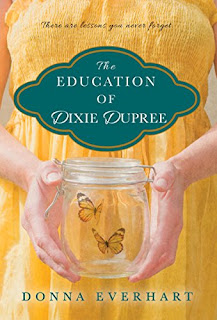I’ve never created a character specifically based on someone I know. Instead, I read a lot of psychology articles – particularly if I’m interested in a specific behavior or trait, but I also think of encounters I’ve had in the past, and I might use a single experience to create some aspect of a character’s reaction or behavior.
Are any of the places based on actual locations?
Yes, some of the places are fictional – like Stampers Creek in The Road To Bittersweet, Flatland in The Forgiving Kind, and Shine Mountain in The Moonshiner’s Daughter. But I use real locations too – i.e., the counties the stories are set in are real, and the towns mentioned outside of where I have my characters. Examples of this would be Wilkesboro in The Moonshiner’s Daughter is real, and in my most recent book The Saints Of Swallow Hill, the only fictitious location is the name of the turpentine camp – Swallow Hill. All other locations in NC and in Georgia which are mentioned are real, like Rockfish, Valdosta, and Argyle for example.
What is the hardest part of writing for you?
Any aspect of writing can be challenging at any given time. I’ve struggled through scenes, dialogue and creating tension, as well as wondering if I was being repetitious, bogging the story down in some way, and the myriad of other worries a writer has when buried in the work.
What’s the best encouragement you’ve had in your writing?
I love getting emails from readers who describe what one of my stories meant to them. That has always been the most encouraging part of creating a story. It doesn’t hurt to get recognition from the top trade reviewers either!
Prior to being published, did you attend conferences to find an agent?
I have only attended one conference. Even though the conference wasn’t about what I wrote, I went to it to meet an agent I had followed for years – only to meet her. She wouldn’t have been able to rep my work – she signs mystery/thriller authors, mostly. That’s the only one I’ve ever been to!
I worked with a freelance editor for about a year on my debut, The Education Of Dixie Dupree. That book had been on my laptop in various stages and forms for the better part of two decades. I finally buckled down in 2009, and “finished” it. That’s when I found a freelance editor around the summer of 2010 who said, “you only have half the story here.”
I began to work with her, and when it was done in early 2012, she had connections in New York publishing. She offered to send the manuscript off to agents she knew on an exclusive. So, one by one, she sent it, and an offer came for representation with the third agent.
What do you know now about writing you wished you had known sooner?
This is always a hard question. You will never have the perfect story. There will always be something you think you should have changed, or that you missed, usually after the fact. You will believe you have found every mistake, and you haven’t. And neither has the editor, or the copy editor. It’s okay – nothing is perfect. This sounds so trite, but it’s true.
What is the best writing advice you’ve received or could give?
If I’m dreading sitting down at my computer to write, it’s mostly because I’m stuck and can’t figure out what’s happening next. But, if I go on and open up the document and begin working, miraculously, I become immersed in the scene/s, and I begin to figure things out. This has never failed.
Don’t compare yourself to other writers because just like a fingerprint, your words are as unique as that. Instead, use what they’ve written to examine your own work, meaning, study how they structure sentences, and ask yourself what is it they’re doing differently.
Are there any other points about writing you would like to add?
You don’t have to write every day, and you don’t have to get your exact word count in every day. Give yourself a break. It can be very refreshing, and to step away can work wonders.
What is the next book coming out? Can you give me a short synopsis?
It’s in the beginning stages, but what I can tell you is it’s set during the Civil War and will likely come out sometime in early 2024. The story is not so much about the war as it is about the repercussions/impact on a family and those around them. This family practices subsistence farming, and yet they become entangled in the effort despite their neutrality after their oldest son runs off to join the Confederacy.
If you'd like to know more about Donna’s books, here's the link to her website. There you'll find her event schedule and perhaps have a chance to meet her in person at one of them. https://www.donnaeverhart.com/





No comments:
Post a Comment